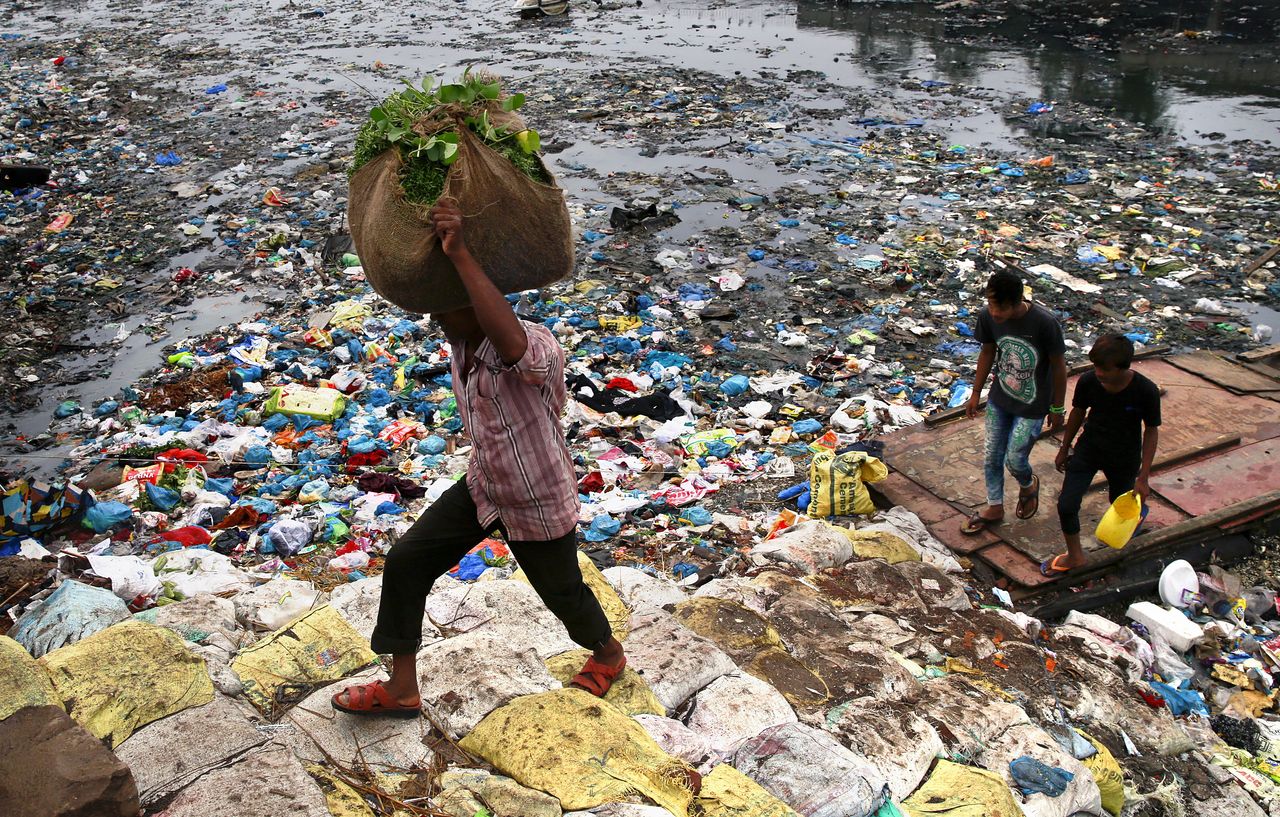How shrimp shells could replace plastic bags
In Egypt, one researcher is turning crushed crustacean into something potentially groundbreaking


Plastic bags are a global problem. Annually, some one trillion of them are used around the world, and fewer than 5 percent are actually recycled. This means a massive buildup of waste, litter, and chemical toxins in the atmosphere.
Material engineering professor Nicola Everitt, from The University of Nottingham in the U.K., thinks she might have the solution: Shrimp shells.
For the past year, Everitt has been working to turn crushed up crustacean shells into biodegradable plastic bags so that they can be used in Egypt, a country with a severely inadequate waste disposal system.
Subscribe to The Week
Escape your echo chamber. Get the facts behind the news, plus analysis from multiple perspectives.

Sign up for The Week's Free Newsletters
From our morning news briefing to a weekly Good News Newsletter, get the best of The Week delivered directly to your inbox.
From our morning news briefing to a weekly Good News Newsletter, get the best of The Week delivered directly to your inbox.
"Because of the fact that there's a lot of waste that's just left around in Egypt, it's even more important to have packaging that biodegrades," Everitt tells The Week.
Some countries have started to take steps to curb the plastic problem. The U.K., for example, has worked to create an established biodegradable bag industry, and some U.S. states have actually started banning plastic bags altogether. Countries like Taiwan, South Africa, and Bangladesh have also opted to ban the bags.
But Everitt's project looks to take these actions a key step further. While transforming shells into shopping bags could help curb the use of oil-based plastic bags, it has another added bonus for Egypt: It could address the country's abundance of crustacean shell waste. Two birds, one stone.
"I like the whole idea of taking a waste product and then making something that will contain waste and will make an environmental problem better," Everitt says.
Sign up for Today's Best Articles in your inbox
A free daily email with the biggest news stories of the day – and the best features from TheWeek.com
The idea for the project came about when one of Everitt's Egyptian colleagues came over for dinner and commented on how amazing the waste collection system is in the U.K. Everitt looked into the system in Egypt and discovered that only about 60 percent of the country's waste is collected, while the rest is left in plastic bags along the street. When she noticed that Egypt also has a considerable amount of shrimp waste, she thought back to her time working with Chitosan, a natural polymer made from crustacean shells, which is similar to the material used to make oil-based plastic bags.
"It occurred to me that we could use Chitosan extracted from shrimp shells and make biodegradable packaging," she said. "So at least if it was lying around at the side of the road it would eventually degrade."
To be converted into bag material, the shells are boiled in acid to dissolve the calcium carbonate (the component that makes the shells brittle). Then it's time to remove the protein molecules by boiling the substance in alkaline. What's left is the oil-based plastic bag-like material, Chitosan.
In September, after receiving a coveted Newton Fund grant for the project, she teamed up with a few academics at Nile University in Egypt to get started. They've since discovered that out of about two pounds of shrimp waste, they can produce as many as 15 shopping bags. That's significant given that the country produces millions of pounds of shrimp waste each year.
This isn't the first time scientists have made use of Chitosan. In recent years, the biomedical industry has researched its potential effectiveness for things like tissue engineering, drug delivery, and wound healing, according to a research paper published last year in the journal Marine Drugs.
But Everitt says this is the first time it's been used for this type of plastic bag work.
Right now, she and the team in Egypt are working to optimize the Chitosan extraction process, which takes about three days to complete. "That might come down when that process has gotten a bit more streamlined," she said.
If the team is successful in Egypt, Everitt plans to explore production in other countries where there is a similar abundance of shrimp shell waste, like Thailand. There is plenty more work to be done before we'll see the end of the plastic bag. But Everitt's work is a significant step in the right direction.
Hallie Golden is a freelance journalist in Salt Lake City. Her articles have been published in such places as The New York Times, The Economist, and The Atlantic. She previously worked as a reporter for The Associated Press.
-
 The biggest international naming disputes in history
The biggest international naming disputes in historyThe Explainer Nations have often been at-odds with each other over geographic titles
By Justin Klawans, The Week US Published
-
 Trump wants to 'unleash' American energy. Why does he hate wind?
Trump wants to 'unleash' American energy. Why does he hate wind?Today's Big Question It's a cheap source of new electricity
By Joel Mathis, The Week US Published
-
 6 romantic hotels for every kind of couple
6 romantic hotels for every kind of coupleThe Week Recommends Love is in the air at these enchanting properties
By Catherine Garcia, The Week US Published